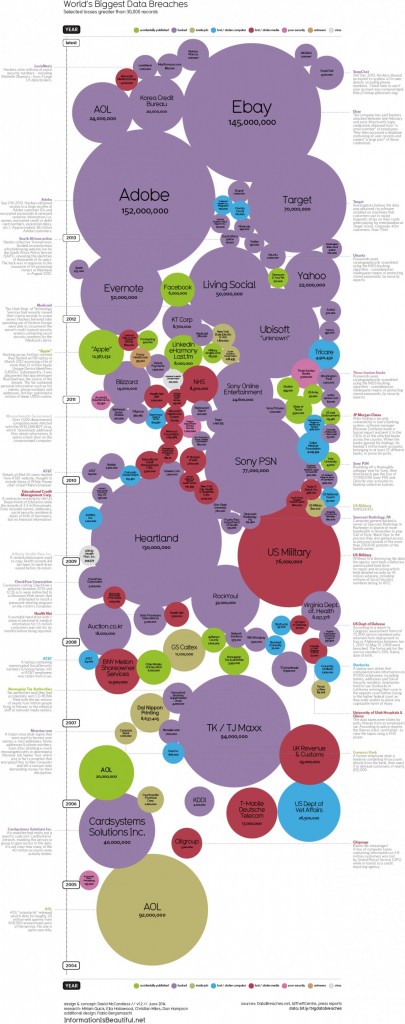Digital is changing faster than ever, yet so many businesses fail to keep ahead of the essential changes required to meet customer demands. 2015 is the year where businesses who take digital seriously are going to thrive and leave their competitors well behind. It’s time to embrace digital and integrate digital technologies throughout your entire business, process and people. Here we are going to look at the priorities for your businesses to utilise digital to grow throughout 2015.
Platform
One of the common challenges for businesses is selecting the right platform for their website. A platform that allows members of the team to easily create, edit and delete pages, images and content throughout the website. A platform that puts you, your staff and your business in control of the direction of your own website. A platform that is capable of scaling as your business grows.

Image source: https://www.flickr.com/photos/ajpscs/
To keep things simple, you really need to be working towards one of the two leading platforms either WordPress or Magento. For most businesses within the SME bracket, one of these two platforms is really the only thing you need to scale your business. There are an awful lot of website platforms available to develop your website on, many of which have a lot of problems with them and are simply not good enough.
This is quite a big topic and is a little outside of the scope of this blog post, so we will cover this a little later down the line in a future blog post. For now, if you have any questions regarding the suitability of the platform you are using, then get in touch and we will be happy to give an honest opinion of the technology you are using and it’s suitability to cope with the growth plans for your business.
The important point around the platform and technology in use on your website is that it needs to be suitable for your business and puts the power in your hands with a Content Management System (CMS). Which brings us nicely onto the next point about ownership.
Ownership
As a business, you need to own your digital assets including your hosting solution and website. What this means is that you need to have access to your own assets and be able to change things as you require. Far too often businesses come to us and tell us the same story (we listen politely every time we hear the story! J), about how another website developer/company owns their website, their hosting and domain name, wants to charge a considerable amount of money for making basic changes on the website, which you should be able to do yourself, the relationship has broken down and they are refusing to release control of your own website to you.

Image source: Paul Townsend
Please, stop and think before purchasing a new website. You need to own everything that is going into it. A web development company exists to assist your business to grow, not to own a significant part of your digital assets and hold you to ransom for them.
Ownership comes in many forms from copyrighted images including stock photographs, your web hosting solution, your domain name, your emails, your website technology, your website content, your login details for all of the above along with external services that are being used on your website, social media channels and tracking solutions and many more. For everything that is implemented for your business digitally, you need to own everything to keep your business safe and secure.
Tracking
Would you like to give me £100,000? No? Why? How about if you gave me £100,000 and I gave you £120,000 back? How about now? Yes? What’s the difference? The difference is tracking. Tracking your digital investments and the return you are generating from your digital marketing channels. That’s the difference.
![]()
Image source: BK Koh
Most businesses simply aren’t tracking their digital marketing activities accurately which ultimately leads to bad investments and distrust in digital marketing activities. Businesses will quite happily spend hundreds of pounds on a printed advertisement in newspapers and magazines, thousands of pounds sponsoring a single event and even over £100,000 per year on radio advertising without any ability to accurately track direct results from those campaigns (yes, these are real figures and stories we have discussed with businesses!). Why? Because they are easy. It is easy to spend money on ‘Advertising’ without understanding what this is generating in return. What would happen if you didn’t do those things? What would happen if you reduced your spend in these areas by half? What would happen if you doubled your spend in these areas? Tracking is key to understanding profitability with marketing campaigns.
Traditional advertising, generally speaking, has an extremely low response rate and an even lower success rate. Compare this with digital advertising where you can track exactly what your results are;
Traditional Marketing
Investment –> Hard to track from here
Digital Marketing
Investment –> # of Website Visitors –> # of Conversions –> Revenue –> Profit –> ROI
Which brings us back to the question of how much money would you give me if you received more money back in return? It all comes down to tracking and data analysis. Being able to track results accurately from SEO, PPC and email marketing allows you to make smarter data driven business decisions. Invest in marketing activities wisely and most important track results accurately across all channels. Google Analytics is capable of tracking your every need.
Integrated Marketing
Have a think about the last time you purchased something in your own life, a car, a holiday, a TV, a laptop, a tablet, whatever. Did you ever just complete one single action during the purchasing journey you took? The answer is no. People are complex, people go through complex purchasing paths depending on their specific needs, level of trust, previous purchases and experiences. It is therefore no surprise that your customers also take a rather complex path when purchasing products and services from you. That’s why it is important to integrate your marketing channels to optimise every channel and touch point that your customers experience on their path to purchase.
![]()
Image source: Jon Tollefson
Think about your offline presence, digital presence including SEO, PPC, email, referral, direct, social and specific campaigns. When a customer experiences your brand on one of the marketing channels above, how do they feel? Are your marketing and communication messages the same across all channels? Are you even using all of the available marketing channels for your business? A positive or negative experience across a single touch point can result in a lost sale for your business.
The key message is to make sure you are active on all digital marketing channels available to you and ensure your customers have a positive experience. Join the dots across all digital marketing channels to enhance your customer’s lives through content, fun and interaction. This leads nicely onto the overall user experience of your brand online.
User Experience
When your customers interact with your brand online what is the experience they have on your website, from mobile devices, on social media, when they search for you on Google, when they see a PPC advert, when you send an email newsletter? Every experience is either a positive or negative one, there is no middle ground.
Taking your website first, how easy is your website to use in general and more specifically on mobile and tablet devices? Responsive design has been talked about for a couple of years now, yet still many websites simply aren’t user friendly and are difficult to use from a mobile. You need not look any further than the endless statistics that are being continually released about the proliferation of mobile devices throughout our everyday lives and interactions with brands online. If your website does not work effectively on a mobile device then you may as well deny people accessing your website from mobile devices as this sends the same message. Any new website that is developed in 2015 needs to be responsive as a minimum, just as it did in 2014. It needs work effectively on mobile devices and tablets.
What is the experience when people receive your weekly or monthly email marketing newsletters? Is this a typical sales focused shouting emails asking your customers to buy with yet another special offer, coupon code or last minute flash sale? Boring. Yes these type of emails clearly do work and should be part of an effective email marketing strategy, but they should not be the main focus. Aim to educate your customers, entertain them and show the personality of your brand. Look to engage with your customers and grow your email list.
What is the experience when people interact with your brand on social media? Are you busy talking about nonsense, retweeting everyone else’s tweets with no idea why and spending hours a day being busy without understanding what you are getting back? Stop, just stop. It’s time to start taking social media seriously, what are you looking to gain from social media? How is social media integrating with your overall digital marketing strategy? Who are you looking to engage on social media? Turn your social media activities into a positive experience for your customers online. Social PPC is essential to reach your customers on social media channels in 2015. Businesses have been testing this over the past couple of years to grow their audience and can be a very successful way to increase the reach of your messages.
Data Security
In 2014 more data security breaches were announced than ever before. The graphic below highlights how intense the large scale data security breaches have been in recent years;
Click image above for larger image
Source: http://uk.businessinsider.com/data-breaches-infographic-2014-12
Many businesses aren’t taking data security seriously, especially within the SME group of businesses. People running websites based on popular content management systems often take the approach of ‘build it once and leave it’. This isn’t good enough. Instead you should be continually updating your website, updating plugins and patching security holes. All of which can reduce the possibility of your website being hacked.
Many times in the last year I have personally received an email from a senior person within a professional large business which has been sent after they have been hacked into, i.e. it wasn’t them who actually sent the email as it contained a virus. While this is never 100% inevitable, there are many things that you can do as a business to protect yourself online. Often with old email technologies, if someone hacked into your web server, they may also find it easier to access your email system.
The government recently announced the Cyber Essentials scheme to help businesses take data and security seriously within their business. Have a good read over what this means for you and your business. In addition to this, Google recently announced that they are considering marking all non-HTTPS websites as ‘non-secure’ which really highlights where websites are heading in the future. Security is key with your business, you digital assets including your website and your customers’ data. Keep things safe and secure by taking the steps needed.
A Bit Further Down the Line
Where would a 2015 blog post be without looking at some of the other items on the horizon but aren’t quite going to become mainstream in the next year. There is a lot of technology in the fringe that is growing in popularity which is really exciting for end users and certain businesses, although it is not quite at the stage for most businesses to take seriously. But let’s take a look at it anyway!
Wearable technologies have been talked about a lot recently and I recently had the opportunity to test out Google Glass and the Oculus Rift, both of which were rather cool I have to say. Recently Sony announced a similar technology designed to remove the ‘cringe factor’ of Google Glass.
Recently Nest announced that Google Now was now integrated into the device, bringing a HAL 9000 experience to the home. Such fun. This was an inevitable next step for Nest which is clearly one of the significant reasons why Google paid such a hefty sum for Nest in the first place. As Nest increases in popularity, Google is going to become further engrained in our daily lives without us having to visit a specific device to search, instead we can just say “Ok Google, what was the football score this afternoon”.
Uber, the taxi booking app, has taken the world by storm. Expect to see a lot more digital disruption in all industries in 2015 and beyond. For your business to stay ahead this year it is vital to innovate throughout every aspect of your business, products and services. Digital disruption is coming to every industry – be prepared.
Facebook search engine? Maybe. Well Facebook did recently announce that they are no longer going to be using Bing for their search provider. Does this mean that they are going to start competing with Google in the search space? Who knows? It will be interesting to see how this develops this year.
Internet of Things is a recent hot topic in digital which is still very much in its infancy. In the very near future, every electronic device will be connected to the internet, from sensors to devices and everything in between. When this happens, it is going to be a very exciting time as the online and offline worlds are connected more than ever. The data and insights that can be gained through such huge data could optimise the physical world we live in to make services and systems more efficient.

Image source: John Biehler
Bridging the gap between the online and offline worlds is going to become seamless for customers. Customers don’t particularly care whether they are dealing with your business online or offline, they simply want to deal with your business. Services such as our WiFi Marketing & Analytics system is ideal for leisure based venues to connect the online and offline dots together. Capturing customer data is the most valuable currency online in 2015.
Summary
Digital is going to be moving at a faster rate than ever in 2015. Your business needs to be prepared and take advantage of these changes or risk getting left behind. Only the strong will survive. Would you like to discuss how we can support your business goals throughout 2015? Then get in touch for an informal conversation about how we can help or take a look through the many services we can provide to increase revenue for your business.

